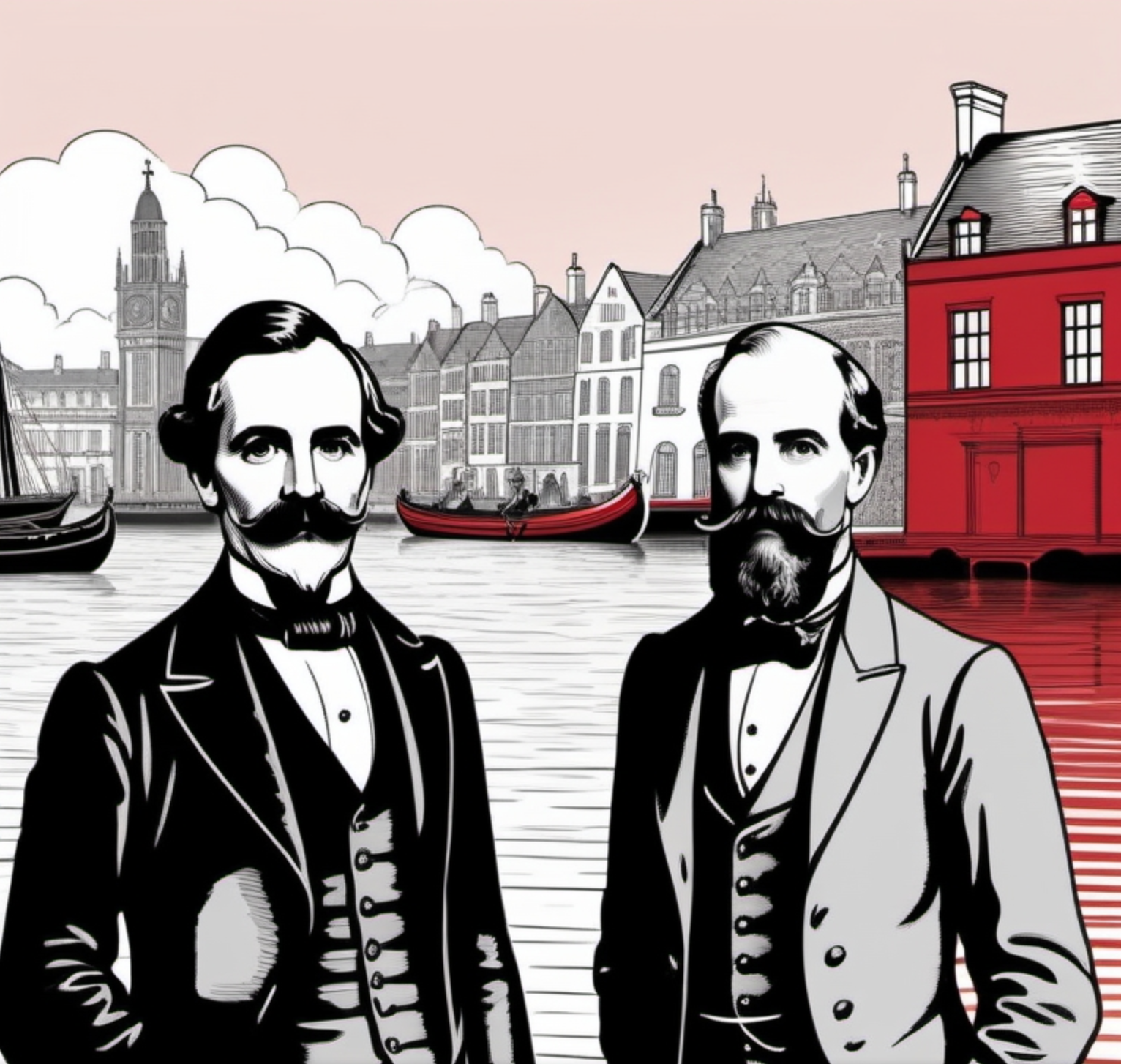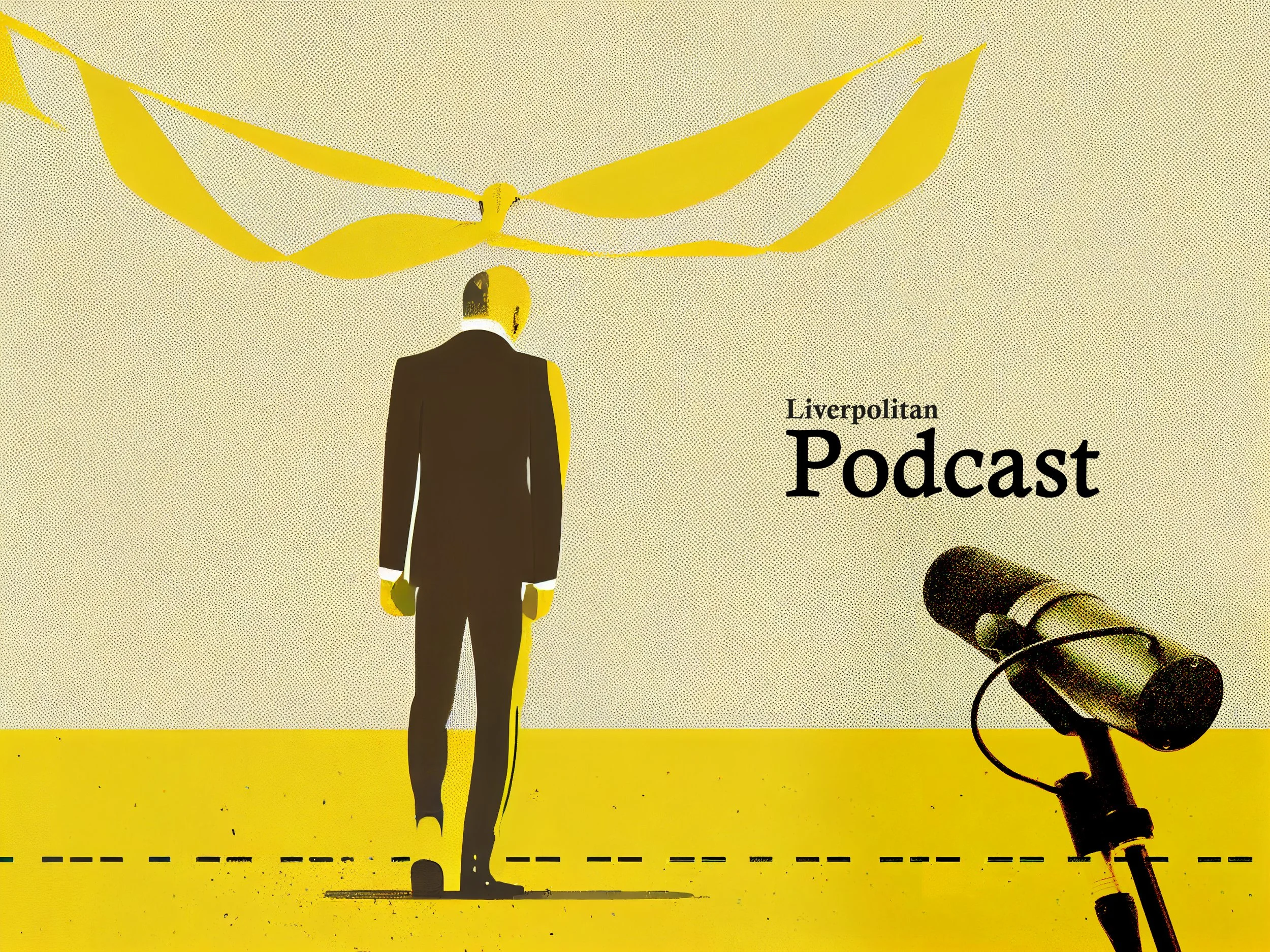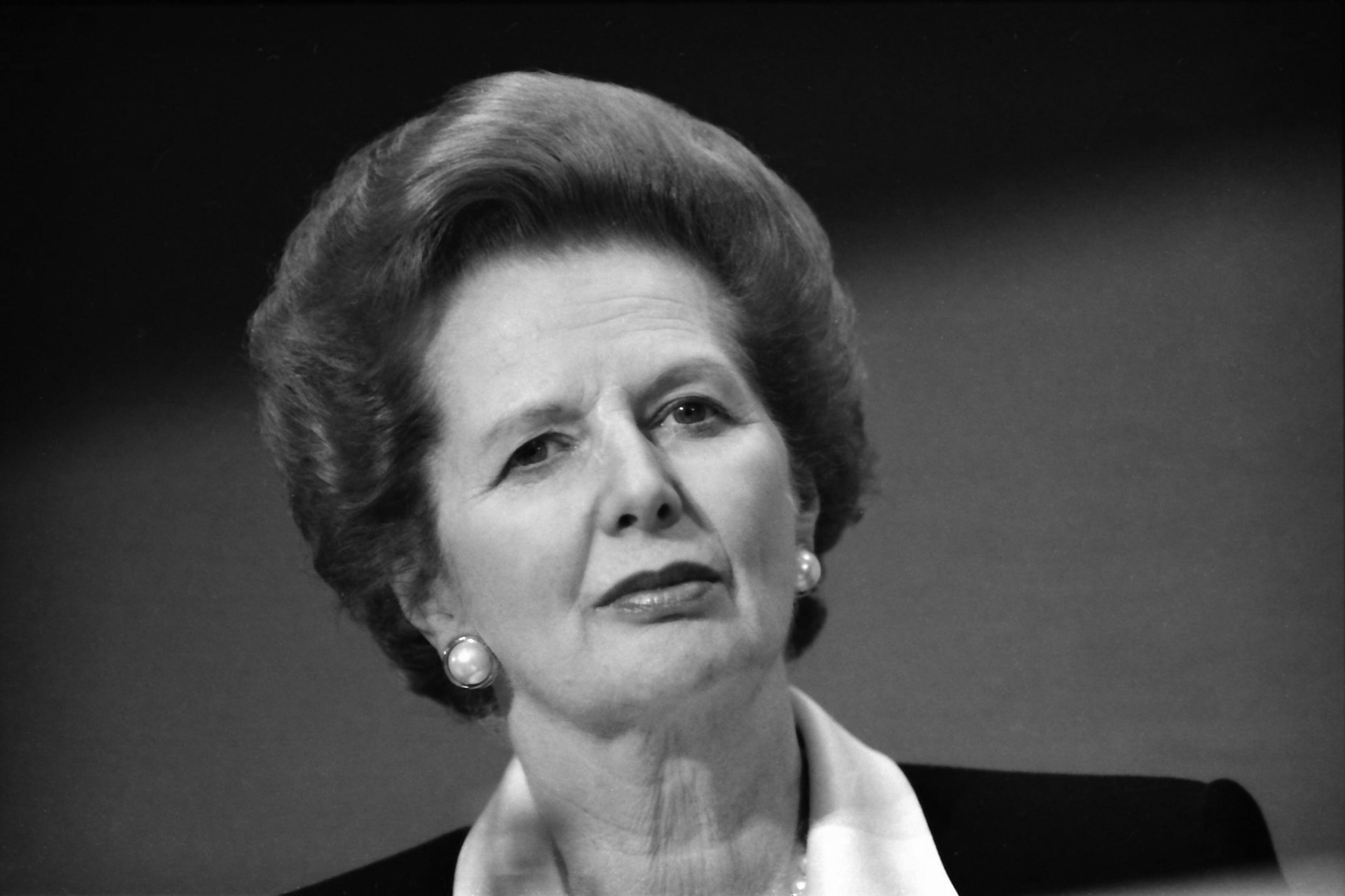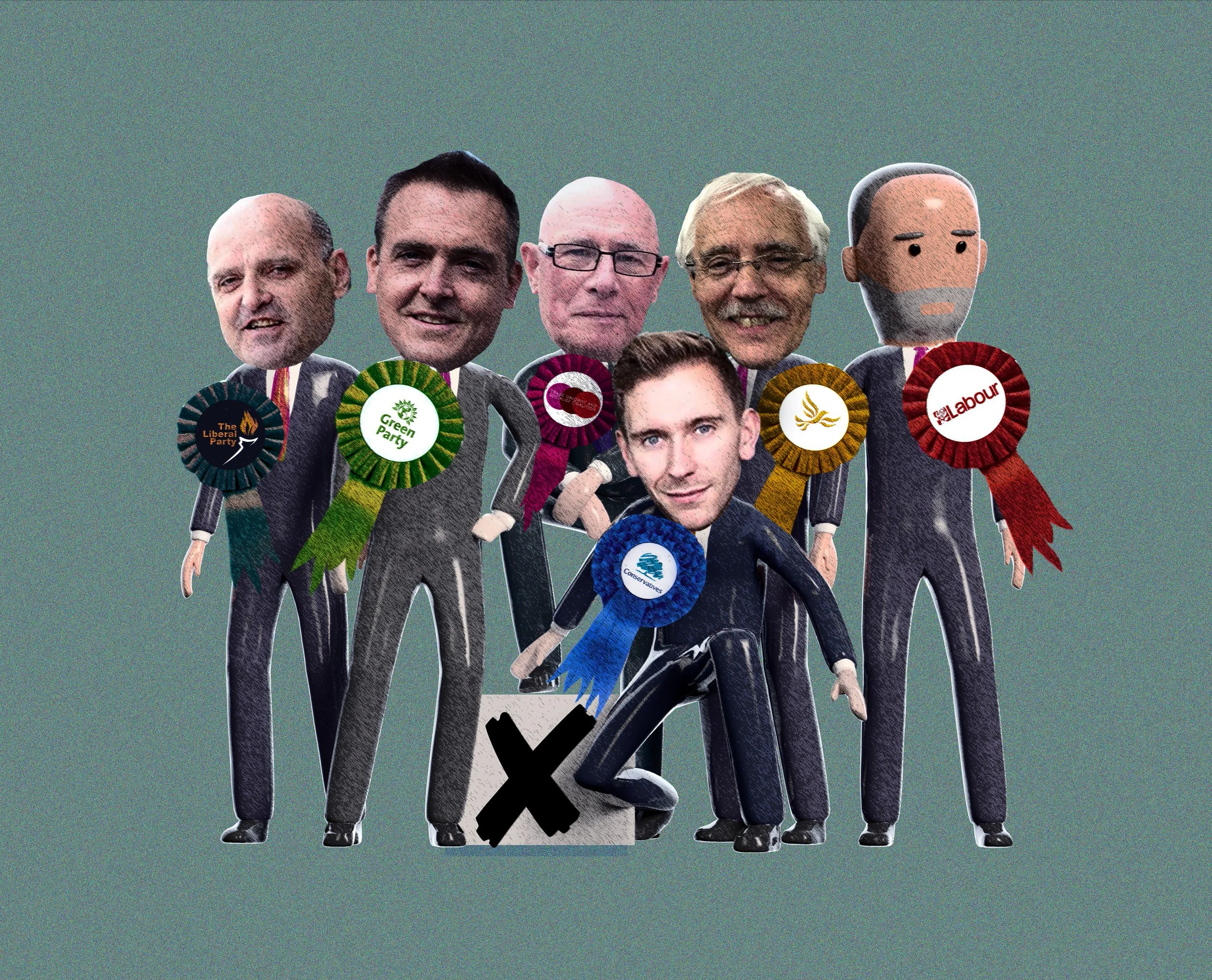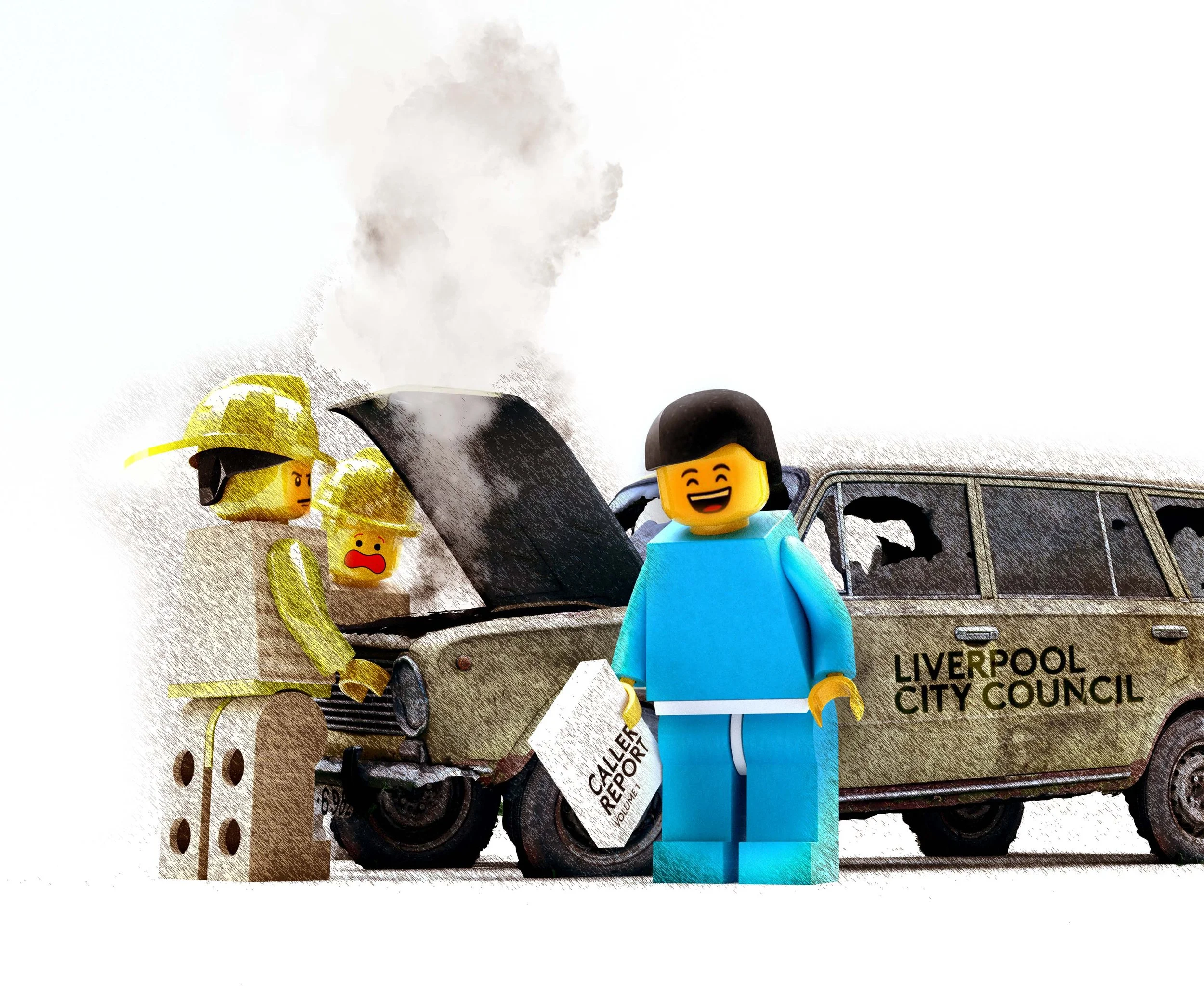Recent features
Pact! What Pact? An Insider’s View on the Lost Battle to Defeat Labour
In the run-up to the 2023 Local Elections in Liverpool, three men working in the shadows, tried to corral the opposition parties into a pact capable of doing some serious damage to Labour at the polls. But in the face of factional intransigence, personality clashes and party ambitions it was doomed to failure. This is the inside story of that failed mission told by one of those men.
Jon Egan
In the run-up to the 2023 Local Elections in Liverpool, three men working in the shadows, tried to corral the opposition parties into a pact capable of doing some serious damage to Labour at the polls. Described as an exercise in herding cats, the enterprise was ultimately doomed to failure, as factional intransigience, personality clashes and party ambitions took hold, before the electorate then delivered the killing blow. This is the inside story of that failed mission told by one of those men, political consultant, Jon Egan.
“Why are we doing this?” is a question that former BBC Radio Merseyside broadcaster, Liam Fogarty and I have been asking ourselves on and off for more than twenty years.
Even before our involvement in the now largely forgotten Liverpool Democracy Commission, we have been kept up at night wondering how to fix Liverpool's broken civic democracy. Years pumped into a losing battle, the odds very much against us. Have we been wasting our time?
The context for the latest phase of anguished introspection was this year’s local elections in Liverpool which, as you may have noticed, returned Labour to power with an increased majority on the City Council. Before explaining the efforts that Liam, myself and Stephen Yip, a former City Mayor candidate and founder of the charity, KIND, made to avert this seemingly predestined eventuality, it’s worth taking the time to fully comprehend and meditate upon the extraordinary fact of Labour’s victory.
There is no simple or rational explanation for Labour’s achievement, although the campaigning skills of my former Labour Party colleague and strategist, Sheila Murphy need to be duly recognised. The Labour campaign was a brilliantly executed masterclass in misdirection, diversion and manipulation worthy of the illusionist, Derren Brown - wiping the collective memory of the city’s voters and convincing them that their party bore absolutely no responsibility for the endemic chaos, waste, corruption and ineptitude of the last ten years. This election, apparently, had little to do with how a struggling city, effectively governed by colonial administrators, was going to put its house in order. No, it turns out the script was the old familiar one about sending a message to the city's historic arch-nemesis - The Tories.
The result, I suppose, proves precisely how difficult it is for people to overcome addictive and self-harmful habits like voting Labour in Liverpool. Maybe what the city needs is not so much new councillors, but counselling.
‘The Labour campaign was a brilliantly executed masterclass in misdirection, diversion and manipulation worthy of the illusionist, Derren Brown.’
In The Myth of Sisyphus, the writer Albert Camus defined the absurd as the irreconcilable gulf that separates human aspirations from the world’s predisposition to thwart them. The tragic image of Sisyphus struggling to roll his enormous boulder to the top of the hill, already sensing the futility of his labours against the forces of gravity, is an apt metaphor for the investment in time that Liam and myself have made in initiatives, campaigns and conversations undertaken over many years in the hope of making Liverpool’s politics function normally. So if the narrative of this election campaign carries the darkly comic resonances of dramatists, Beckett and Ionesco, and their Theatre of the Absurd, then this is not literary pastiche, but rather the perfect paradigm for Liverpool politics. And in that spirit, it seems appropriate to start not at the beginning, but at the end.
One of the most inexplicable aspects of the election result, was the way that the defeated parties far from despairing at the loss of an historic opportunity, were to varying degrees seemingly satisfied (or at worst only mildly disappointed) with their less than modest achievements. For the Liverpool Community Independents getting only three of their cohort re-elected was at least ‘a springboard’ from which to progress. For Green Party Leader, Tom Crone, “bitter disappointment” extended only as far as lamenting the loss of one target ward (Festival Gardens) by a single vote.
For Richard Kemp, the eminence grise of Liverpool Liberal Democracy, the pitiful addition of three councillors, would give his party “plenty of time for reflection on how the council should work, and where the city should be going.” One wonders how after four decades as a City Councillor, Richard was still trying to figure out these rather elementary conundrums, before he finally decided to fall on his sword and announce his long anticipated retirement as party leader.
So let’s rewind to the beginning, or at least the beginning of Act 2. Act 1 being the heroic, but ultimately doomed campaign by Stephen Yip, to be elected as City Mayor in 2021.
Running a surprisingly close and creditable second to Labour’s Joanne Anderson , Yip’s undoing was the stubborn refusal of Green Party Leader, Tom Crone and the ubiquitous Kemp to stand aside to allow for the possibility of deliverance from a disgraced and discredited Labour administration. The 2021 election seemed, at the time, to be a decisive “never again” moment, with penitential expressions of regret from Liberal Democrats and Greens and pledges to learn the lesson of fractured opposition.
Like trying to roll a rock up a hill. Now more than ever, Liverpool’s opposition parties needed to master the alien vernacular of co-operation.
So to Act 2
Following the publication of the Caller Report in 2021 it was decreed that Liverpool should abandon the baroque and inscrutable election-by-thirds system, and instead adopt an all-out election on new boundaries with the majority of councillors to be elected from single member wards. Now more than ever, Liverpool’s opposition parties needed to master the alien vernacular of co-operation. Seemingly unable to conduct conversations between themselves, the task of scoping the opportunities for an electoral pact fell to myself, Stephen Yip and Liam Fogarty. Having manoeuvred the boulder to within inches (well maybe a couple of hundred metres) of the summit in 2021, we felt that one more effort was something we owed both to ourselves and the people of Liverpool. Far from delivering the new dispensation promised following her election, the era of Anderson 2.0 (Joanne) was notable mainly for its dismal continuity - a botched energy contract costing the city millions, hundreds of millions more written off in uncollected tax and rates, revelations concerning councillors dodging parking fines and extended roles for Government Commissioners taking responsibility for even more substandard and failing services.
The process of encouraging political and electoral co-operation between Liverpool’s opposition factions began with a discrete gathering at Richard Kemp’s house in the summer of last year. Treated to copious quantities of sausages and dips, a generally constructive exchange with Richard and his Lib Dem colleague, Kris Brown, concluded with a suggestion that Liam attend their upcoming policy conference to raise a few issues and provide an outsider perspective on the challenges of the upcoming election. Both from this gathering and the subsequent conference, we sensed a distinct lack of enthusiasm for the idea of any form of electoral pact. If this was to happen, pressure rather than polite persuasion might need to be applied.
By the end of the year, we had started informal conversations with friends and contacts within the other three opposition groups - The Liberal Party (an eccentric relic from the pre-Alliance / Lib Dem era sustained in Liverpool through the hyperactive exertions of its charismatic talisman, Cllr Steve Radford), the Liverpool Community Independents (a party formed by dissenting former Labour councillors primarily disillusioned by cuts and corruption) and the Green Party. With the prospect of another squandered opportunity on the horizon, we resolved to take the decisive step of inviting the leaders to a more formal gathering hosted by Stephen Yip at the HQ of his charity, KIND. The tactical approach was to corral the three most willing participants into an agreement and then publicly challenge or shame the Liberal Democrats to come on board.
‘It began with a discrete gathering at Richard Kemp’s house in the summer of last year, where we were treated to copious quantities of sausages and dips.’
Eschewing sausages for club biscuits (salted caramel flavour), the more business-like ambience of the gathering cut straight to the quick. Without an agreement from opposition parties (all of whom occupied terrain to the left of the centre) we would be facing the prospect of another four years of Labour misrule. Apart from pointing out the mutual benefits of a pact, we offered to provide whatever practical, organisational and campaigning resources we could muster from the networks created during Stephen Yip’s mayoral campaign. Admittedly, these were no match for the Labour legions, but we believed they could help the disparate groups to sharpen core messages, target more efficiently and raise the quality and potency of communication collateral. These resources were conditional on the reality of a pact and a clear indication that its participants were putting city before party.
From the outset the Liberals and Community Independents were fully and unequivocally committed to the principle and practicalities of a pact. For Tom Crone and the Green Party, the proposition was clearly more problematic. Promising to take the idea away for "consideration", we were left with an uneasy sense that history was repeating itself. It was unclear at the time, and indeed still is, by what means of mysterious convocation, the Liverpool Green Party reaches its decisions. With Tom intimating that the national party was instructing them to field the maximum possible number of candidates, the sad implication was that regime change in Liverpool was less of a priority than adhering to the diktat from on high. After several days of radio silence, I was tipped off that Tom would be attending a film event at St Michael's church, and it might be a useful opportunity to see how things were progressing. Our conversation, sadly, revealed that they weren't, and that even a three party pact was becoming an unlikely, if not entirely illusory, possibility.
Stephen Yip's description of our undertaking as an exercise in herding cats was suddenly complicated by the unexpected arrival of a much more exotic species defying all known zoological and political categorisations. The first in a series of audiences with hotelier and property developer, Lawrence Kenwright, took place in late December in the sepulchral gloom of the Alma de Cuba bar, formerly St Peter's church. The bar had been the venue for a series of revivalist-style rallies at which Kenwright had railed against council corruption, presenting himself as the figure-head for a new, popular movement called Liberate Liverpool, that would sweep aside the cliques and cabals that had brought the city to its current parlous state.
‘It was unclear at the time, and indeed still is, by what means of mysterious convocation, the Liverpool Green Party reaches its decisions.’
I was deputed to conduct the initial conversation, that provided a fascinating insight into Kenwright's character and motivation, the history of his relationship with the City Council and Mayor Joe Anderson, and the ambitions underpinning his political project. Kenwright's almost visceral determination to unseat Labour was evident; what was less clear was his precise role in the project, and the means and method by which it was to be achieved.
Whilst it was easy to understand the motivations behind Liberate Liverpool, and its attraction as an antidote to an out of touch and self-serving politics, it was difficult to believe that it offered any kind of remedy. Symptoms are not cures, and Liberate Liverpool’s attraction for cranks, conspiracists and far-right interlopers was perhaps an inevitable consequence of its febrile genesis and almost millenarian rhetoric. Some good and sincere people answered the call only to be sent into battle with the campaigning equivalent of peashooters and water pistols. At a subsequent meeting (accompanied this time by Liam Fogarty and ex-Labour Councillor Maria Toolan), we embarked on what we thought was a subtle policy of dissuasion, politely pointing out the inherent flaws of a campaign targeting "people who don't vote" and relying almost exclusively on social media, only to be accused by a Kenwright acolyte of "disrespecting Lawrence."
Our approaches were an attempt to scope the albeit remote possibility of identifying suitably vetted independent candidates who could be assumed into a broader-based Clean-Up Coalition. It is an indicator of our desperation that this hope was ever entertained.
‘We embarked on a subtle policy of dissuasion, politely pointing out the inherent flaws of a campaign targeting "people who don't vote" only to be accused by a Kenwright acolyte of "disrespecting Lawrence."'
As February rolled into March, our efforts became simultaneously more modest and more desperate. Following advice from a sympathetic insider, we were advised to bypass Kemp and re-pitch the idea of an electoral pact to the Lib Dems through the party's former leader and campaign supremo, Lord Mike Storey, who we later discovered was to stand as a candidate in Childwall. Alas Stephen Yip’s conversation with Storey was even more emphatically negative than the sausage-gate soiree with Kemp months earlier.
It was clear we needed to explore more pragmatic alternatives. If not a city-wide pact, perhaps a nod and a wink understanding to avoid actively campaigning in each other's target seats? Maybe also an agreement around some core commitments to improve transparency and accountability, combat corruption and restore public confidence in the City Council? Initially, Richard Kemp sounded refreshingly and surprisingly up for it, but with the fatal complication that some of their target seats were also target seats for the Greens and the Liberals. Nods and winks would have to be restricted to the safest Labour seats in Liverpool where none of the opposition parties entertained serious hopes of winning. In other words, for show only. Meanwhile, Stephen Yip drafted four pledges on transparency and corruption, which were immediately endorsed by the Community Independents and the Liberal Party. The Lib Dems, however, would not sign up; the response published on the But What Does Richard Kemp Think? blog, a depressingly patronising and public epistle "explaining" that the proposals were either illegal, already in place (due largely to his efforts) or would be a waste of money. It seemed futile to point out to Kemp that the proposal for an Independently-chaired Standards Board was not only perfectly lawful, but had been initially drafted for Stephen's Yip’s 2021 manifesto by Howard Winik, who was now a Liberal Democrat candidate.
Unlike his predecessor, does the Lib Dem’s new leader, Carl Cashman have the imagination or inclination to detach his party from its comfortable civic niche in South Liverpool suburbia?
For me, this was perhaps the final and conclusive evidence that laid bare the true nature of Liverpool Liberal Democrats and their deep complicity in a council whose corrupting and dysfunctional culture long predates the shortcomings of the Joe Anderson era. They are not, in my view, an "Opposition Party" in any meaningful sense of the word, but are more akin to the tame collaborators in the sham democracies of the Soviet Bloc - the Liverpool equivalent of the Democratic Farmers Party of East Germany. They have no desire to fundamentally reform or reset a moribund civic culture, but are content to bide their time in the hope that circumstances will grant them an opportunity to preside over its decrepit edifice. In one sense, Liberate Liverpool were right; the Liberal Democrats are not part of a solution, but are an intrinsic and intractable part of the problem. Whether Kemp’s much younger successor, the neophyte Carl Cashman, has the imagination or inclination to detach his party from its comfortable civic niche and the bucolic pastures of South Liverpool suburbia, will largely determine whether Liverpool's local democracy remains a hollow charade, or becomes an empowering mechanism for change.
‘The Lib Dems are not an "Opposition Party" in any meaningful sense of the word, but are more akin to the tame collaborators in the sham democracies of the Soviet Bloc - the Liverpool equivalent of the Democratic Farmers Party of East Germany.’
Epilogue
It is the tragic-comic circularity of the narrative that makes Liverpool politics an absurdist drama. The interminable wait for Godot - an intervention, a new structure, a new political alignment, a salvific figure able to break the cycle of failure, corruption and chaos that has blighted our city for as long as anyone can remember.
On the day of polling, I was helping Maria Toolan with some last minute door knocking to encourage supporters to get out and vote in the City Centre North ward. She was already sensing with fatalist resignation, that her efforts to unseat two former Labour colleagues had failed. "The problem is," she lamented "people aren't bothered about waste and corruption, it's what they expect from the city council and they don't believe that it's ever going to change."
This is the suffocating dead weight of Liverpool politics, an oppressive inertia and sense of fatalism engendered by decades of broken promises, betrayed trust and shameful failure. It's the gravitational drag that immobilises progress and snuffs out any glimmer of a more honest and hopeful politics.
Labour's strategy understands and exploits this endemic cynicism. It doesn't really matter how badly we've governed Liverpool, this is a Labour city and elections cannot alter this brute existential reality. Sending a message to the Tories might actually seem like a more worthwhile place to put an ‘X’ than investing in a hope for something better, when you suspect that this isn't even a logical possibility. Little wonder that 8 out of 10 Liverpool voters decided to stay at home.
Would an electoral pact have unseated Labour? Would it have signalled to voters that there was a tangible possibility of an alternative administration? It's hard to say, but looking at the results and totting up the number of seats where competing opposition parties on the progressive wing of politics won more votes than the Labour majority, it cannot be completely discounted.
Labour mis-fire. By personalising the campaign against Gorst, they had also localised it. In Garston, the election was no longer a rehearsal for a General Election. It was about the honesty and integrity of individuals and their credentials to represent their community - weak territory for Labour to fight on. Photo from Twitter @Pablo8485
If there is cause for hope, it was in the response to what was one of the most deplorable manifestations of Liverpool Labour's darker instincts. The officially sanctioned Labour campaign, scripted from on-high and professionally disseminated under the supervision of Sheila Murphy and their Regional Office, was a vacuous mash-up of kick-the-Tories and Eurovision-phoria. But beneath the sanitised veneer another more vicious and toxic campaign was being waged against Community Independent candidates who had originally been elected under Labour colours. Fake social media accounts became platforms to abuse, ridicule and defame the Community Independents with particular venom aimed at Sam Gorst, a former Labour Councillor seeking re-election in Garston.
The ferocity of the campaign against Gorst reached its nadir with a shamefully deceptive leaflet masquerading as a community newsletter which raked up Gorst's old social media posts, and more seriously, falsely implied that he had used his position as a councillor to jump the social housing queue. Within an hour of the leaflet being issued, we launched our final, and perhaps only effective contribution to the election campaign. A round-robin email was despatched to secure the support of the city's four opposition leaders in a joint denunciation of Labour's malicious and dishonest leaflet. And to their credit, Kemp, Radford, Crone and the Community Independent's Leader, Alan Gibbons all replied with personalised quotes for a media release within 30 minutes. The unprecedented show of unity secured positive media coverage, that was followed by The Echo's political correspondent, Liam Thorp exposing the tell-tale fingerprints of Labour on the scurrilous social media accounts.
An otherwise faultless Labour campaign had slipped up. By personalising the campaign against Gorst and his running mate Lucy Williams, they had also localised it. This election and the campaign against Alan Gibbons in Orrell Park, were no longer just dummy run rehearsals for a General Election or a vote of thanks for delivering Eurovision; they were about the honesty and integrity of individuals and their credentials to represent their community. Gorst, Williams and Gibbons' victories may or may not be a platform for the future growth of the Liverpool Community Independents Party, but they are perhaps a hopeful intimation that gravity doesn't always win.
Jon Egan is a former electoral strategist for the Labour Party and has worked as a public affairs and policy consultant in Liverpool for over 30 years. He helped design the communication strategy for Liverpool’s Capital of Culture bid and advised the city on its post-2008 marketing strategy. He is an associate researcher with think tank, ResPublica.
Share this article
What do you think? Let us know.
Write a letter for our Short Reads section, join the debate via Twitter or Facebook or just drop us a line at team@liverpolitan.co.uk
Face Value: What makes a good council?
Are diversity and representation the most important determinants of a good council? Reacting to our previous article, Child Labour, Liverpool’s Lib Dem Leader Richard Kemp, the city's longest standing councillor, leans on his years of experience to explain what he thinks makes for a successful council chamber.
Richard Kemp
There have been a lot of comments on the Liverpolitan Twitter feed recently after they published Child Labour, an article about the number of young councillors coming on to the scene in Liverpool.
I was struck by the defensive nature of some of them especially from those who had been elected as young councillors themselves. Yet no-one has suggested that young councillors are a bad thing. They can offer a viewpoint and an energy that older members of the chamber might struggle to bring. A good council will use the knowledge and energy of young people as part of a balanced team where their voices can be heard rather than dismissed as it so often is.
I thought that I might contribute to this discussion because although at 69, I’m clearly not a young councillor, I was once and my experience of moving through the ages might help the debate. I was first elected at 22, became the equivalent of a Cabinet Member at 24, and after 39 years in office, I’m now the longest serving councillor in Liverpool. In a variety of roles including as national leader of Lib Dem councillors I have supported elected members in more than 50 councils across the country so I’ve seen a lot of local government – both the good and the bad.
This experience does hopefully give me a long-term perspective from which to answer two related questions which I want to address - ’What should a good council look like?’ and ‘What does a good councillor look like?’
So to the first question. In a nutshell, a council should look as much as possible like the people of the area it represents. This applies both to the elected side of a council and also to its workforce, but in this article I’m just focusing on the elected side.
“When choosing candidates we have to be looking at factors like gender balance, ethnicity, age and class. Does what’s found in the chamber reflect what’s found out on the streets?”
Why is this important? Because having a diversity of councillors means that there is a diversity of knowledge and experiences within the council chamber. Different groups of people are impacted by decisions in different ways so having broad representation ensures that we keep our eyes open and our hearts sensitive to the different priorities of the groups that make up our population. That’s really important because even if our intentions are good as councillors we can’t presume we understand everything or even feel everything that is important to our electorate.
For example, I have never been discriminated against on the grounds of race, gender or sexuality. I can empathise with those who have and have a feeling for their challenges but I do not have that direct experience. Perhaps it’s the same with generational differences. I wasn’t born into the computer age, so I don’t have that instinctive feel that younger people do when discussing the challenges of technology, the industries of the future, the pitfalls of social media and issues around how we best communicate with each other. Ultimately, each person has their own stories to tell, and the better our representation, the more able we are to harness them to improve policies and more effectively monitor their success from different perspectives.
All of this means that when choosing candidates to stand for our parties we have to be looking at factors like gender balance, ethnicity, age and class. Does what’s found in the chamber reflect what’s found out on the streets? It’s worth looking at some of the available statistics. In Liverpool, according to the last census data 51% of our population are female and 49% male, while about 14% are from ethnic minorities including those born in other countries. A wide range of faiths are represented. Our population trends slightly younger than the national average with the under 30s clustering in the centre and average ages increasing as you move outwards especially to the north. When you start to look at profession and class, manual workers now make up a smaller proportion of our elected officials compared to when I first became a councillor, but that reflects changes in the city and society as a whole. The age of mass employment in big unionised factories like Tate & Lyle, Ogdens Tobacco, Dunlop, Courtaulds or, of course, the docks is long over, a decline which set in many years ago as computers and mechanisation took over.
Liverpool Council is currently completing a survey of councillors but the last one, conducted five years ago, showed that only 40% of elected members were female. However, the last five years has brought about a big change in that figure with Liverpool now one of the few councils in the country to achieve gender parity. We appear to have made less progress in other areas. Later this year we will have access to the first results from the 2021 National Census. This will provide us with the most up-to-date information about the make-up of the city’s population compared to that of its councillors. Those results should prove useful as we continue to try to improve representation.
Councillors from Liverpool and the Wirral had their say on our article, Child Labour
However, and this is an important point, diversity is not enough on its own. Having elected members that look like the community does not mean they’d make inherently better councillors. Being a councillor involves passion and compassion; with a strong civic desire to serve the community. It involves commitment. It involves hard work. Being who you are is only the start. It’s what you want to do and how you want to do that counts and it takes a council chamber full of people with vision and ability to make a good council that is both representative and capable.
If we turn our attention to the second question, ‘What does a good councillor looks like?’, we can see why the ideal council is difficult to create. Your average councillor has four calls upon their time. In addition to what can be the hard and demanding grind of the job of councillor, they also need to earn a living, care for their family and help run their political party which usually involves a lot of campaigning and canvassing. Juggling these different demands is a challenge and the level of difficulty lands differently on different people effected by things such as time of life, financial security, responsibilities for others and many other factors.
Being a councillor in a big city like Liverpool is a particularly arduous task if you do it properly and most councillors of most parties do. The life of a councillor involves attending council and committee meetings, keeping up-to-date with the constant stream of information and documents, coordinating with other councillors from your political group, and undergoing professional training when necessary. And all the while you are trying to weigh up matters, figuring out what decisions you have to take, and the need to make decisions is continuous. We then have to work within the communities that we represent, fact-finding and campaigning alongside the many volunteers who keep community life ticking over. For many of us council life is almost 24/7 and 365 days a year.
It’s worth noting that councillors do not receive a salary. Instead they receive a basic annual allowance which is worth £10,590 plus expenses. Those councillors who have additional responsibilities such as Cabinet members receive additional Special Responsibility Allowances (SRAs) but of course, many do not. This means, that most have no choice but to work for a living. Very few employers like the idea of a member of their staff being a councillor. The fact that we can legally demand unpaid time off to a certain level is unattractive to many which is why councillors often work for the public sector, unions or choose to be self-employed.
Outside of work, councillors have families and face the same pressures as the rest of the population. Those with added responsibilities such as caring for ageing parents or young children will inevitably have more on their plate than those who aren’t dealing with such issues. This is of course not unique to councillors but it’s worth noting because for some perfectly able individuals it can be an impediment preventing them from running for office or continuing their work once elected. In my experience, it’s easier to find the time to do things when you are a grandparent rather than when you’re weighed down with the challenges of parenthood.
Finally, all councillors except perhaps independents have to work inside their own political party undertaking political campaigning and policy development not only for local but also for national elections. What will surprise people who always think of us as politicians, is that party work often takes up a very small percentage of our time. More often than not, we tend to think of ourselves as councillors and not politicians.
All of these four factors intervene at different times to affect what we can do as councillors and even whether we can continue to do the job.
In future, if we want a more representative council we need as an organisation to understand the realities of these four competing pressures on councillors and provide support mechanisms to help people cope with them. For example, there’s a carers allowance whereby councillors with young children can get some support for childcare activities but none for those who have to care for relatives either older than themselves or those with physical or mental needs.
“The question of money gets raised from time to time. Some believe councillors should be paid more to attract better candidates. I don’t think that more money would actually change the makeup of the council, nor should it.”
I often mentor Lib Dem council groups and young people who are thinking of standing for office or even sometimes those who have been already been elected and they often ask me if I think being a councillor is a good idea. My answer is invariably, “Yes, but think through what that will mean to you and yours.”
Being an elected representative is a huge learning experience which we often fail to capture. On the job, I learned how to speak in public, how big organisations work and how to work effectively within them. I developed many skills in political and managerial leadership. I also picked up a lot of knowledge about people, communities and the way that the public sector responds to needs and problems.
I was lucky enough to find a job as a regeneration adviser which made use of those skills and knowledge sets. That was, however, by luck not judgement and no help was given to me to find work that would utilise my hard-earned experience. I think a major way forward for all councillors, except for old gimmers like me, would be to find a way of accrediting the learning experiences and training that we have acquired. Having people who know how the public sector works, can chair meetings, can speak in public, and understand how to interpret balance sheets and trading accounts should be a very attractive proposition for both public and private sectors if we could capture that and enable us to put it on our CVs.
For very practical reasons there are life factors which will inhibit the very young and very old from being councillors. Most young people want to experience life in a range of educational, work and leisure activities before settling down. At the other end of the timeline, I am finding it increasingly difficult to cope with some of the grind of council work. I can now only deliver leaflets for 2.5 hours before the knees go!
But saying that, there is an advantage to being an ‘old hand’. I have developed a deep well of ‘life experience’, some of it gained though my time at the council, but much of it elsewhere. I’ve learned how to listen, how and when to intervene, how to make a point and when it’s better to keep my mouth shut. I now have the confidence to know that I know a lot, but also that it’s OK to admit that there are areas where I know little or do not have the skills required. Always strive to surround yourself with great people – you don’t have to be an expert in everything.
The question of money gets raised from time to time. Some believe that councillors should be paid more to attract better candidates. I don’t think that more money would actually change the makeup of the council, nor should it. When I was first a councillor, we only received an allowance of £10 a day which wasn’t a lot of money even in 1975! But it didn’t affect my desire to do the job. You have to do it because you care and because you feel that being a councillor is your way of giving back to the community that you live in.
I’ve had a great deal of pleasure and satisfaction from my years as a councillor, but it has never been an easy job. When people tell me I am not doing enough of this or that or spending my time wrongly, I always challenge them to stand for the council themselves. Being an angry couch potato or keyboard warrior is much easier and few take up the challenge.
Most councillors of all parties do their best. Everyone can help us to do our job better by supporting us with their time and knowledge in a positive way. If you want more good councillors think of ways in which you could help the ones you’ve got now – that is if you are not prepared to put yourself to the electoral test!
Richard Kemp is the longest standing councillor in Liverpool. He is also the Leader of the Liverpool Liberal Democrat Group.
Share this article
What do you think? Let us know.
Write a letter for our Short Reads section, join the debate via Twitter or Facebook or just drop us a line at team@liverpolitan.co.uk
How should we be governed? Six parties have their say…
The Council’s public consultation on future governance models for Liverpool is now open and at Liverpolitan we think you should get involved. But what’s the position of the parties? We asked six of them – Labour, Liberal Democrats, The Green Party, The Conservatives, The Liberal Party and the Trade Unionist and Socialist Coalition (TUSC) to write up to 400 words stating which of the three governance models they favour and why.
Liverpolitan
Well, we might not have got the referendum we wanted but the people of Liverpool still have a chance to have their say on how the city is run. The Council’s public consultation on future governance models is now open and at Liverpolitan we think you should get involved.
Healthy democracies require participation and in a city that often sets a high bar on shenanigans, figuring out how to keep our representatives and over-lords in check and on-track seems like a worthwhile way to spend our spring evenings.
So what do you need to do?
Visit https://liverpoolourwayforward.com
Read about the three options on the table, weigh up the pros and cons, talk to your friends and family, have a row about it, and complete the online survey by no later than the 20th June 2022.
The three options presented are:
1) The Mayor and Cabinet model – what we have now
2) The Leader and Cabinet model – what we had previously
3) The Committee model – what we had before the year 2000
Once the results of the consultation are in it’s then up to our councillors to decide how or indeed whether to implement the results. That may leave wiggle-room for all kinds of disagreements but there’s a strong suggestion that parties will attempt to honour the outcome. Any changes that take place will be implemented from the 4th May 2023 at the local elections.
But which models do each of the parties support?
We asked six local political parties – Labour, Liberal Democrats, The Green Party, The Conservatives, The Liberal Party and the Trade Unionist and Socialist Coalition (TUSC) to write up to 400 words stating which of the three governance models they favour and why. Each party either has local councillors in Liverpool now or in the case of the Conservatives and TUSC regularly field candidates in local elections.
Here’s what they had to say.
The Labour Party position
We approached Major Joanne Anderson for comment but did not receive a reply, although in a previous interview on BBC Radio Merseyside she said “I want to say neutral." However, an official party spokesperson gave us this statement:
by a Liverpool Party spokesperson
“The city wide consultation is now open and the Labour Party is committed to listening to what the residents of Liverpool have to say about how the City Council is run. It is important that no political party pre-judges the outcome of the consultation and that residents feel that that their voices are being heard. Based on the results of the consultation, the Labour Party will then take a formal position on the governance of our city.”
Model favoured: Undecided
Liverpolitan says: Labour’s position is not to have a position until the results of the consultation are in. They will then decide on their favoured model ‘based on the results’.
The Liberal Democrat position
by Councillor Richard Kemp, Leader, Liverpool Liberal Democrats
The ‘committee system’ is the Lib Dem choice for Liverpool’s governance
“There are three choices allowed in law by which the council can govern itself although some modifications can be made to the Leader and Committee models.
“I am working on the assumption that few in Liverpool would be mad enough to vote to keep the Mayoral system as it has been so badly devalued by Joe Anderson.
“The Leader and Cabinet model has many of the bad mechanisms that are contained in the Mayoral model. Much has been made of the fact that this is the model that the Lib Dems introduced in 2000 but we had little choice because the only two options that were available to us were the Mayoral or Leader models. Both of them concentrate power in the hands of a few people and do so in a way which encourages secrecy and makes it very difficult to challenge what the Cabinet wants to do. The Leader model was the least bad option!
“Since 2012, a third way has been available which is called the Committee system. This means that decisions are taken not by a one-party cabinet but by a number of committees which are representative of the political make-up of the council. That means that:
1. Decisions can be challenged at the time they are made by members of both the biggest party and the other parties on the council.
2. All councillors will be involved in decision making which means that they will know more about what is going on and have to account for the decisions that they make to the people.
3. The people of Liverpool will be more involved as well because there are far more people that they can ‘nobble’ about these decisions.
4. The system is much more accountable and transparent with far fewer decisions being made in the dark recesses of the council.
“We believe that this is the best way forward and will campaign for it in the coming months. However, there is no point in consulting with the people of Liverpool unless we are prepared to debate the issues with them and take heed of what they have to say. We hope that a clear expression of what people want will come out of the consultation. We will then support the people’s views and I challenge the other parties to do exactly the same.”
Model favoured: The Committee system
Liverpolitan says: The Lib Dem’s position is clear – they will be campaigning in favour of a Committee structure of governance but promise to abide by the results of the consultation.
The Green Party position
by Councillor Tom Crone, Leader, Liverpool Green Party
Democratic decision-making for a cooperative political culture
“We are very critical of this consultation. Once again, the people of Liverpool are being denied a proper say on how we are governed. In 2012, while voters in cities across the country were asked if they wanted an elected mayor, Liverpool Labour decided they knew best and imposed the mayoral model. The result was a decade of chaotic mismanagement. Now the city council is having to work round the clock trying to fix the mess left behind.
“This consultation does not have the same democratic authority as a referendum. Having three options makes a clear, unambiguous decision unlikely. The responses will need interpreting, and that will still leave the final decision with the Labour Party. That has a nasty whiff about it. We would much prefer to trust the people of Liverpool with the final decision.
“The Greens will be making the case for adopting the committee system. The committee system involves many more councillors in decision making and policy development. Under the current system even most Labour councillors have very little to do with real decision making. It is only Cabinet members who have real executive powers. Other democratically elected councillors are simply shut out. Even within the Cabinet, the Mayor sets the agenda and can predetermine outcomes. Power is really concentrated in a very small number of individuals. This leads to poor decision making, not least because it fails to make use of the skills and experiences of all the 90 councillors elected to represent their communities.
“The committee system, as well as sharing out power more fairly, also encourages much more constructive cross party working. The public rightly complains about “yah-boo” politics and it is shocking how often our debates in council chamber descend into pointless political point-scoring because really decisions are taken elsewhere. A committee system means different parties having to sit down together and really decide how best to deliver for the people of Liverpool. Councillors will soon realise that they agree on a lot, while learning to respect distinctive perspectives.
“The imposed Mayoral system opened the door to the shame of the Joe Anderson years, and slammed it shut on transparency and democratic accountability. It’s time to ditch the personality politics and let the people back in.”
Model favoured: The Committee model
Liverpolitan says: The Green Party’s position is clear – they will be ‘making the case’ for a Committee structure of governance.
The Conservative Party position
by Dr David Jeffery, Chairman, Liverpool Conservatives
The voters should decide whether we have a Mayor, not Liverpool Labour
“In 2012, referendums were held across 11 of England’s large cities on whether to introduce directly elected mayors. One city was conspicuous by its absence: Liverpool. Instead, in their infinite wisdom, the Labour-run city council decided to ignore the people and voted to bypass a referendum. They introduced the mayoral position by stealth, and parachuted in Joe Anderson – and we all know how that turned out. Of the three authorities which have adopted and then subsequently abolished the mayoral system, all three have done so following a referendum. If Liverpool Labour get their way, once again one city will be conspicuous by its absence: Liverpool.
“The truth is that this Labour council want to ignore voters. This consultation is a gimmick – the result is a foregone conclusion, likely designed to sooth internal party arguments and resentments that have built up under Joe Anderson. We’re told by Labour that a referendum would be too expensive - never mind the fact that seven Labour councillors rebelled over Labour’s budget, which built up excessive financial reserves – but those more sceptical than I might argue it’s not a surprise that this move came after Labour were forced into a humiliating second round of voting in the 2021 mayoral election.
“Decisions on how our city is run should not be made from on high in Labour Party backrooms. Our executive arrangements should not be a consequence of internal Labour Party management. This city’s government is not their plaything, and to treat it as such is an insult to voters.
“There are good arguments for a Mayor: studies have shown that, compared to a council leader, mayors better represent the whole city, are more outward-looking, and are better at bringing much-needed investment into the city. Mayors are put in office by the people, whilst council leaders are selected in grubby back-room deals within their own party, and as such mayors have a better claim to speak for the city as a whole.
“Indeed, it is arguable that the real issues with Liverpool’s politics isn’t the mayoral system, but the fact that Liverpool Labour allowed Joe Anderson to abolish the mayoral scrutiny committee because he didn’t like the type of scrutiny he was receiving.
“Liverpool Labour should do the right thing and give the people of Liverpool a vote on how they are governed. It really is that simple.”
Model favoured: Undecided
Liverpolitan says: The Conservative Party have yet to take a formal position but do see merits in the Mayoral system. However, they believe that it should be up to the voters, not parties to decide which model to choose through the implementation of a referendum.
The Liberal Party position
by Councillor Steve Radford, Leader, The Liberal Party
Time to wake up. Keep the Mayor, adopt Proportional Representation and ask questions
“In over 40 years in politics I’ve seen corruption and abuse of power in all models of local government in Liverpool.
“In the Militant years I saw the sale of land at knock-down prices, council officers withholding information, dodgy minutes and record keeping and much more that I sadly can’t put into print. And that was under the committee system.
“Key to the abuse of council procedures was a willingness by some to turn a blind eye to those who broke or undermined the rules. Later on, during the Lib Dem years things were little different and legal battles had to be fought just to uphold the basic right of council members to attend certain public meetings. That was under the Leader and Cabinet model.
“One of the reasons I fear abuse of power has gone on for so long in Liverpool is the failure of the police to uphold the law. Today, they are tasked with some very important investigations under Operations Aloft and Sheridan that have been triggered during the years of the Mayor and Cabinet model. We should watch the outcome of those investigations closely.
“So what’s the answer? Firstly, we must get rid of the first past the post voting system than gives an inflated majority to a lead party, creating a vacuum of safe seats where the electorate is totally taken for granted.
“Secondly, we need senior council officers selected on merit, not on how subservient they are to the ruling party. Some have been brave enough to stand up for professional standards. Others have not.
“On to the Mayoralty. Without a doubt, both central government and the business community prefer a Mayor with an agenda focused on the whole city, rather than a Leader who is just accountable to a ward and their own political council group.
“Liverpool is an internationally recognised city and we need a Mayor to put us on a level playing field with our global peers. If Liverpool has in the past elected the wrong mayors that responsibility ultimately lies with the electorate. Being candid, it’s about time residents looked more at the person, and less at the colour of the rosette.
“Some readers may know that I chair the City Region Scrutiny Committee – and from that role I can see how the Metro Mayor, Steve Rotheram quietly secures funds for the region by adopting more mature and less confrontational politics.
“We should have a Mayor but we need a more diverse council elected by proportional representation, and we need a more curious electorate willing to ask difficult questions of the candidates who canvass for their votes.”
Model favoured: Mayor with Cabinet
Liverpolitan says: The Liberal Party position is clear – they support retaining the Mayor with Cabinet structure of governance, but want to see the adoption of city-wide proportional representation for local elections.
The Trade Unionist and Socialist Coalition (TUSC) position
by Roger Bannister, Leader, Liverpool TUSC
Response to Proposals on City Governance
“Three proposals have been put forward on models for council governance in advance of the ending of the term of office for the directly elected Mayor in 2023, which are referred to as The Mayor and Cabinet Model, The Leader and Cabinet Model and the Committee Model. Of these three models, TUSC supports the Committee model.
“TUSC takes this position because it is the Committee Model that gives most powers to the directly elected councillors, rather than concentrating many of them in the hands of one person, as the Mayor and Cabinet Model does, or in the hands of a relatively small number of people as the Leader and Cabinet Model does.
“It is the strong view of TUSC that the electorate is best served when power is more evenly shared amongst councillors, so that by making representation to a Ward Councillor about an issue, that councillor will be able to exert influence effectively on behalf of the people that he/she represents. This is less likely to be the case with the other two models.
“It is our belief that both the Mayor and Cabinet and the Leader and Cabinet models were devised in order to ‘speed up’ the council decision making process, and whilst this is not a bad thing in itself, if it is done at the expense of democratic process, it is potentially prone to corrupt practice. Given the current involvement of the police in the municipal affairs of Liverpool, this point must be taken very seriously indeed.
“It is also our belief that there is a large and growing disconnection from, and cynicism in local politics in Liverpool, which can be expressed quite vehemently when people speak to TUSC candidates and supporters during election periods. The introduction of a directly elected Mayor, not as in most cities following a referendum, but by will of the Council alone, has done little to halt this trend.
“Local government in Liverpool is at a crucial stage, with democracy under attack both from the recommendations of Max Caller, with a reduced number of councillors, and elections only on a four yearly basis. Now is not the time to further reduce democratic accountability as the first two options would do.”
Model favoured: Committee system
Liverpolitan says: The Liverpool Trade Unionist and Socialist Coalition (TUSC) position is clear – they support the Committee structure of governance.
So there you have it. Some for the Committee system, some leaning towards keeping the Mayoral model and some steadfastly neutral or yet to declare. But now it’s over to you. Each model has its advantages and disadvantages. What do you think?



